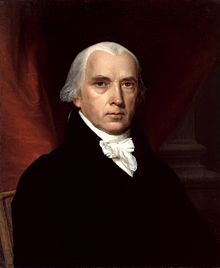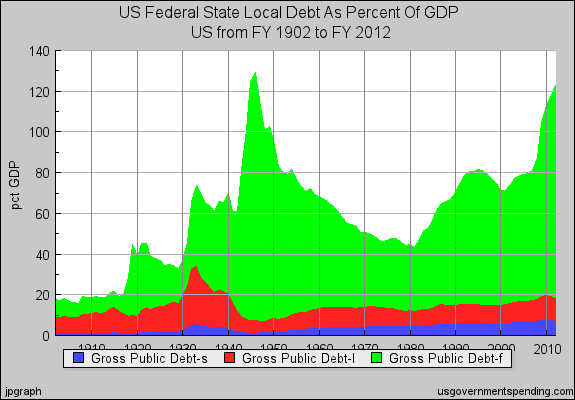 I apologize for not posting so often in English. I wish I could be able to do more!
I apologize for not posting so often in English. I wish I could be able to do more!
For those of you that have missed the last news from Planet Europe, well, lots is lost and little is lost.
The good guys are still fighting against austerity and are held back by the “enemy”, so to speak. Our fellow friends in Greece are entrenched in an uphill battle, while we await anxiously the result of May 31st Irish referendum on the European fiscal plan that –if approved – is meant to make austerity more austere in the next years to come. The arrival of the new French President seems to have accelerated somewhat the anti-austerity party but not much is clear on the if, how and when of the final victory of our party.
As for the most important piece of news, you Americans should be aware that a growing share of our local élites are raising –in the midst of this perfect recessionary storm – the issue of moving toward a United States of Europe where fiscal policy and debt issuance would be more centralized than today. By which I guess we mean a larger share of revenues and expenditure also being decided at the central level, possibly in the European Parliament.
The benchmark model that the supporters of this solution evoke appears to be United States of America. Yes, the Usa. Details are unclear yet, but behind the fog of a closed-doors debate something of the kind appears to take form. The most often-quoted guy here in Planet Europe is no-one less than … Founding Father Alexander Hamilton (picture). Yes!
The best article I found so far on this issue is by Princeton’s Professor of History Harold James (another article by Ronald McKinnon clarifies the historical US background a bit better but draws imperfect analogies with today). Read it!
But just let me explain what is so interesting about US history that attracts these “new European federalists”. They believe to have found in Hamilton’s decisions at the end of the war a key strategic parallel to move forward in Europe.
What the US did at the end of the Independence war was something of this kind, in McKinnon’s words: “More or less accidentally on June 20 1790, Thomas Jefferson met a very despondent Hamilton – whom he invited to dinner the next day. This invitation was later extended to a few other notables such as James Madison. The result was the most famous dinner party in American history. The deadlock was miraculously resolved by each side relenting and giving up long-held positions to satisfy the other. The outcome was that Jefferson, with Madison not opposing, agreed to the federal government’s one-time assumption of the states’ debts with no “haircuts” for the speculators. while Hamilton, along with other northerners, agreed to move the capital of the new republic from Philadelphia to the “banks of the Potomac” in 10 years’ time.”
Now, let’s be clear. In reality Europe does not want to do anything of this kind: certainly saving Greece from its debt payments or allowing it to default to grow again is (unfortunately) out of the question. At most it is debating on whether issuing a (large? Small?) share of future bonds (so-called euro bonds) backed by every euro-member.
But, still, the idea would be one of moving the political decision process toward the center, with Portugal and Germany more akin to today’s Tennessee and Massachusetts, both with balanced budgets and transfers decided from the center to support poorer Portugal in a downturn with a bit of Germany’s taxpayers money.
But, the devil is in the details, by quoting Hamilton to justify this move not only do we make an historical blunder but we also embark on a perilous and largely dangerous path if we do proceed forward. Let me explain why.
It is not true that the United States that resulted from that 1790’s dinner was a highly centralized federal construction. States were still dominant bodies and it is only with the New Deal that I suspect that Federal Government became the real player in town. Data on XXth century local (red), state (blue) and Federal (green) public debt over GDP so much at least have to say.
Actually, as an aside, if there is one lesson we should learn from the XIX century US history is that many US states that got indebted and into trouble, for too much public investment in canals and railways and too little revenue to back it up, were allowed to default and the markets to suffer from it. Had we Europeans proceeded in the same direction with Greece when we would have been able to, we would not be in these terrible conditions today where the Greek small fire has become a general and dramatic burning of the whole European forest.
But more importantly, a United States with a Federal Government that united different cultures required time, a war, and time again. It was a lengthy process that took a large amount of patience across generations and which had always the wise background political element of reforming (unifying) the country at a the right pace, without endangering the social fabric and the economy.
What the US did in 2 centuries we Europeans (at least some of us, not me) want to do in two decades.
Why is this relevant? Because if there is one thing European governments know how to do well, as Robert Musil well-documented in his fantastic 1930s novel of “The Man without Qualities”, is to embark into bureaucratically engineered processes of institutional design that distract us from relevant issues.
Italian PM Mario Monti replied last month to Nobel Prize Stiglitz that Europe, compared to the United States which only (yes, only!) pursues economic well-being, has the additional goal of the growth of European institutions, which could sometimes lead to lower (short-term?) growth. I think Prof. Stiglitz remained quite puzzled at this statement: shouldn’t institutions be built to foster growth and happiness? But.
But be sure of this. If Europe today embarks – just a few years after a cumbersome process that created the new common currency, the euro – in a new decade of institutional reforms toward centralizing debt, revenues and expenditures, Monti will be right: economic growth in Europe will collapse. What Monti and others might not realize is that this might represent the last fatal blow on European unity and the European project.
The historical reality is that for a unified country much more is required than the federal government advocated by the European supporters of Madison. Quoting Harold James: “Abraham Lincoln’s original proposal to end the immoral practice of slavery by compensating slave owners for manumission was unacceptably expensive, so the Union, according to the slave-holding Confederacy, was determined to expropriate the South. The federal assumption of states’ debts by itself could not guarantee political order. The Civil War revealed the centrality of a common foundation of morality to Hamilton’s approach to debt and public finance. As a result, his approach foundered on the differences between the different states’ conception of morality. Europeans today have latched onto the practical side of Hamilton’s argument – that is, the idea that debt mutualization might be a means to cheaper credit; but they have worked out neither the political institutions, nor the shared public virtue, that Hamilton deemed crucial.”
That is correct, we have yet to work out a few small details like common values, understanding, mission.
Yes, as sociologist Zygmunt Bauman claims, we do need a global government for a global world. So we do need a global state of the size of the United States of Europe.
The issue here is how much time should we take to create such large and powerful entity.
What we should fear is that by proceeding fast in this direction we might end up forgetting the needs of the current populations, exhaust them and revolt them against the European project of Peace and Unity. Furthermore, a fast-track process will run the risk of being governed not by the people and their representatives but by technocrats, putting at risk the necessary pre-conditions for Peace and Unity: Democracy and Accountability. A fast-track process will not be based on common understanding but on a common imposition.
What is required now from European leaders is exactly this: to be leaders. To adopt the right policies that generate enthusiasm for a complex and marvelous project called Europe. If this enthusiasm will be lacking, no cold-blood institutional experiment of common policies based on democratic approval will ever see the light and make Europe possible. If this enthusiasm will be generated, if unemployment will go down and growth will pick up rapidly thanks to expansionary monetary and fiscal policies and a weaker euro, then, little by little, and without any war, we will be able to move at the right pace toward the United States of Europe absorbing the best part of the suggestions that History kindly provides us.
After all Madison had to … work with Lincoln and Roosevelt to have the deal done, right?

28/05/2012 @ 07:35
I don’t understand…quite well. And I say this out of high esteem.
Let’s say that this- http://www.gustavopiga.it/2012/some-more-information-on-italys-and-greeces-derivatives-in-the-euro-area/- is a very good point (related to the real reason of “italian spending review”), and also this one: “…Thank God we have the International Monetary Fund (IMF) to remind us of that. The April IMF Fiscal Monitor is out. Its title is “Balancing Fiscal Risks” but the true star of the report is the word … “multiplier”, cited 117 times. The multiplier: how much output changes when public spending changes.”…
So, since historical conditions doesn’t reproduce themselves in exact shapes, maybe we just need that this european governance has to be swept away, as a whole, by european constituencies…But the problem about this cultural and democratic opening, is “who does control the media”?
All in all, ideas are certainly very effective…but this works in the right direction and the other way around either